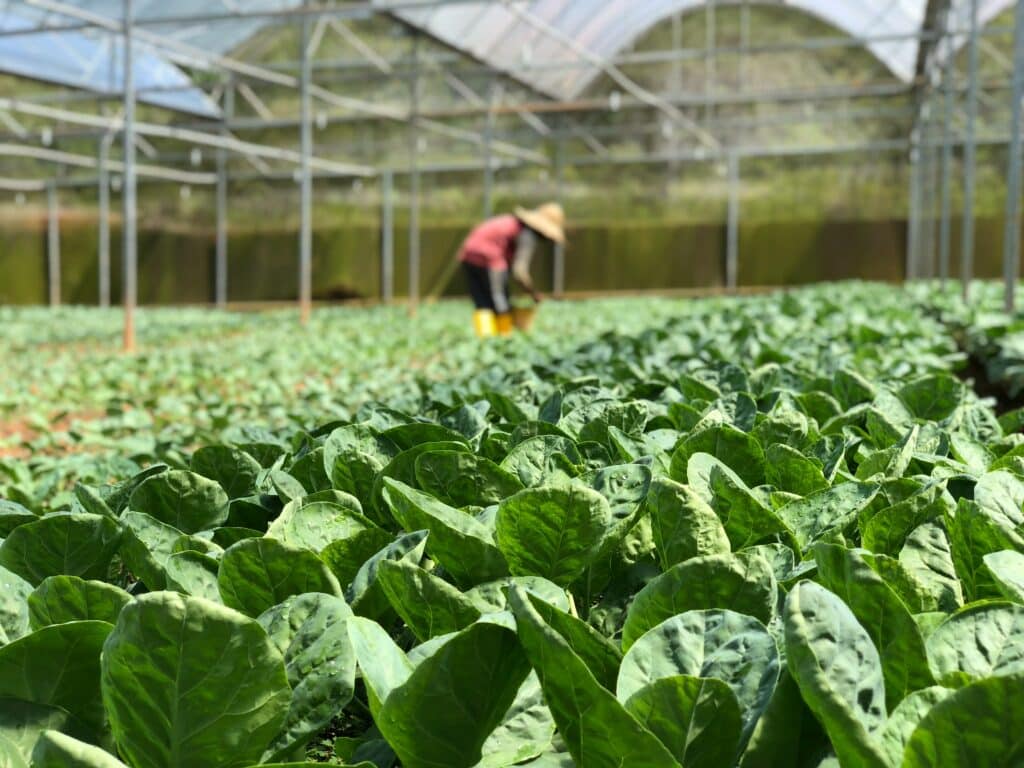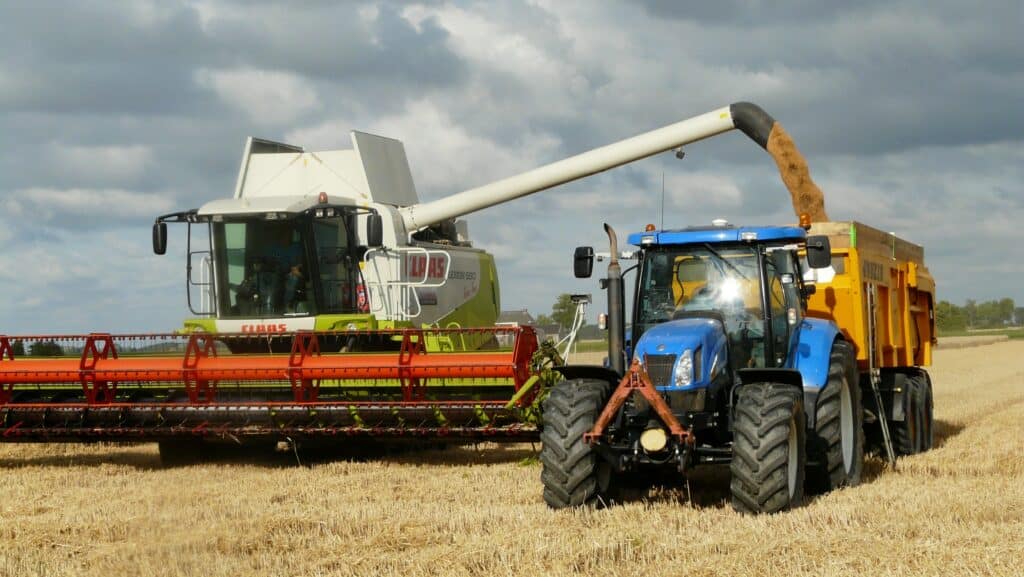Is Farming/Seeds/Milling a Good Career Path?
While farming has been here for centuries, it still maintains an important place in today’s technologically-advanced world. The farming, seeds, and milling industries serve as the cornerstones of the agriculture sector and provide a wide range of job options. However, is farming/seeds/milling a good career path? Let’s take a look at this industry more closely.

Table of Contents
What Are the Best Farming/Seeds/Milling Jobs
Here are some of the best jobs in this sector:
Farm Manager
They oversee all daily activities on a farm, such as planting, harvesting, planning, and budgeting. Typically, a farm manager holds a degree in agribusiness, agriculture, or related fields. Of course, practical agricultural experience is crucial for effective farm management. Additionally, one can take a Master’s degree in Agribusiness or Agriculture. Doing so will help one with farm management, economics, strategic planning, and sustainable farming.
Agronomist
One of the aims of an agronomist is to increase agricultural productivity. So, they need to do intensive research on plant and soil science. To start, one has to have a bachelor’s or master’s degree in agronomy. These courses help one learn more about plant and soil science, agricultural production, and advanced research.
As an agronomist gets a more advanced degree, they will be better equipped for agricultural research, innovation, and consultancy. Getting a Certified Crop Adviser (CCA) accreditation can also help establish and boost one’s professional reputation.
Seed Technologist
Seed technologists are researchers as well as breeders of better seed kinds. These professionals usually have a degree in agronomy, plant genetics, or related courses. Many aspiring seed technologists obtain certifications like the Certified Professional Agronomist (CPAg) title. This ensures that they are proven to be capable of what’s expected from the job. One can also study and obtain a Master’s degree in Seed Science or Plant Breeding to learn more sophisticated breeding methods and effectively increase seed variety and output.
Milling Operator
Harvested grains are transformed into goods like flour or oil. Milling operators oversee the machinery used for these processes. One of the expectations from these operators is that they are skilled in operating machines and they are familiar with the laws governing food safety. Milling operators can take advanced training and certifications to learn more about milling, milling equipment, quality control, and food safety.
Agricultural Sales Representative
These sales representatives market and sell seeds, farm machinery, and other agricultural goods. While it is not required, a business degree is advantageous if one wants to apply for this job. Additionally, having agricultural experience is an advantage.
Why You Should Get a Job in Farming/Seeds/Milling
A farming, seeds, or milling career is perfect for people who are passionate about sustainable food production. Being part of this industry means playing a crucial role in feeding the world. What’s more is that working in the farming, seeds, or milling sector offers diverse opportunities and the potential for a fulfilling job. From hands-on farming work to scientific research endeavors, the agriculture sector provides a range of career pathways to explore.
Opportunities
Agriculture and related businesses will continue to be crucial as long as there are people to feed. Many different career pathways are available in this sector, ranging from active farming jobs to positions in scientific research.
Compensation
Depending on the job expectation, educational attainment, place of work, and years of experience, the salary in the agricultural, seed, and milling industries can vary significantly. However, a general outline of possible revenues in certain areas is provided below, based on salary.com’s data.
- Farm managers. They typically make more money because of their larger responsibilities. The average salary of farmers, ranchers, and other agricultural managers is $45,835 and ranges between $39,707 and $59,097.
- Seed Technologists. Salaries are sometimes greater for positions requiring a deeper level of expertise. For instance, plant geneticists and seed technologists frequently earn greater pay due to their extensive education and the importance of their profession. Depending on their position and the organization’s size, a professional with several years of expertise in seed technology may expect to make a respectable compensation average salary of $161,379, or ranges from a low of $143,264 to a high of $181,973.
- Milling Operators. Pay for operators varies. They may be paid hourly wages, but a milling supervisor or manager with several years of expertise may be paid a sizable yearly income. A milling supervisor makes an average of $52,721. The salary range typically falls between $46,760 and $59,921.
- Agricultural Sales Representatives. Earning potential for effective salespeople in these industries may be fairly high because basic salaries for sales roles sometimes include commissions or incentives depending on sales performance. The payscale of agricultural sales representatives averages $90,792. Their salaries typically range between $72,000 and $114,000 a year.
- Education and Consultancy. Agricultural consultants and educators may also make a decent income depending on the demand for their services. Agricultural educators’ incomes usually depend on their educational attainment and their areas of expertise, while experienced consultants can demand significant sums for their recommendations.
Remember that many jobs in these areas offer intangible rewards like working directly with nature and supporting vital businesses in addition to monetary payment.
Outlook
The future of labor in the agriculture, seed, and milling industries is promising due to population growth, technological advancements, and a growing awareness of sustainable practices.
- Farming. According to a report by the United Nations Food and Agriculture Organization (FAO), there will be an estimated 9.7 billion people on Earth by 2050. This means that the need for food will increase as well. It is projected that cutting-edge agriculture practices like precision and vertical farming would create new opportunities despite resource constraints and climate change.
- Seed Business. The seed industry is key in meeting the world’s food demands by delivering high-quality, disease-resistant, and high-yielding seeds. Genetic engineering and biotechnology advancement are expected to take this business forward. According to Fortune Business Insights, the global commercial seed market size was valued at $40.70 billion in 2017 and is projected to reach $61.32 billion by the end of 2025.
- Milling. The need for processed food items and the growing global population drive constant expansion in the milling industry. Additional changes in this industry will probably be brought about by developing new milling technologies and a greater emphasis on nutrition and food safety.
Since agriculture and food production are crucial, there’s a guarantee of job security. In addition, the skills that agricultural companies expect are transferrable and may be used in other industries, such as resource management, problem-solving, and technical know-how.
Additionally, the emphasis on sustainable practices over the years is one of the key developments affecting these sectors. As a result, organic farming, sustainable seed production, and ecologically friendly milling techniques are in greater demand, which may open up new career prospects for those knowledgeable in these fields.
Overall, despite the difficulties these industries face, such as those caused by climate change, resource scarcity, and market fluctuations, the basic need for food production and the continual advances in these industries point to a bright future for those working in agriculture, seed production, and milling.
A Growing and Flourishing Career
Farming/seeds/milling is a good career path to take, especially if the work itself and the study it requires excite you. However, it is crucial that you wisely decide which type of job you would want to apply to.
While that can be daunting, it’s important to also see the many possibilities that this sector offers. It can actually provide various job opportunities, commendable pay, and a bright future for many. If you want a career that can lead to personal fulfillment and professional advancement, maybe it’s time to give this industry a look.
Sarah is an accomplished educator, researcher and author in the field of testing and assessment. She has worked with various educational institutions and organisations to develop innovative evaluation methods and enhance student learning. Sarah has published numerous articles and books on assessment and learning. Her passion for promoting equity and fairness in the education system fuels her commitment to sharing insights and best practices with educators and policymakers around the world.







